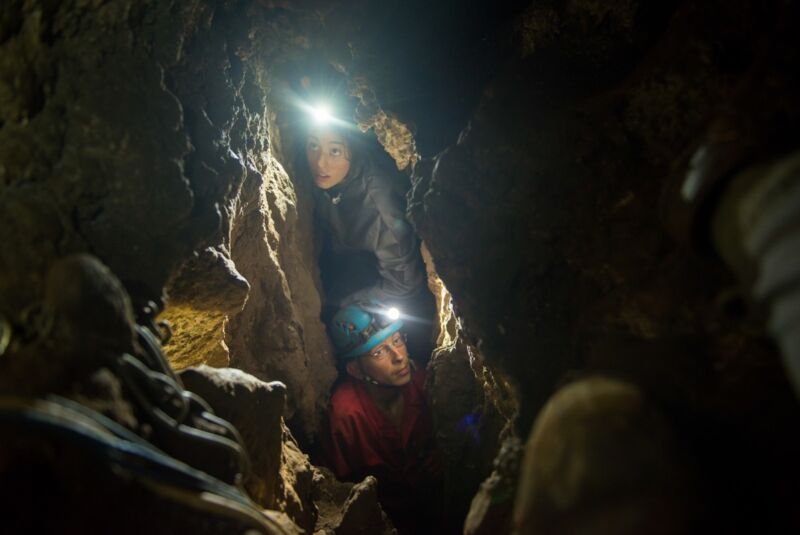Homo naledi were burying their dead at least 100,000 years before humans

Enlarge / Exploration team members Megan Berger and Rick Hunter navigate the narrow chutes leading to the Dinaledi Chamber of the Rising Star cave in South Africa, where fossil elements belonging to Homo naledi were discovered. (credit: Robert Clark/National Geographic)
Some 25 miles outside of Johannesburg, South Africa, there is a famous paleoanthropological site known as the Cradle of Humankind. So many hominin bones were found in the region that it was designated a UNESCO World Heritage site in 1999. Among the many limestone caves in the region is the Rising Star cave, where cavers discovered fossils representing a new hominin species, Homo naledi, in 2015. Only H. naledi remains were found in the cave, suggesting the possibility that the bodies had been placed there deliberately, although this hypothesis proved to be a bit controversial.
Now the same expedition team has announced the discovery of H. naledi bodies deposited in fetal positions, indicating intentional burials. This predates the earliest known burials by Homo sapiens by at least 100,000 years, suggesting that brain size might not be the definitive factor behind such complex behavior. The team also found crosshatched symbols engraved on the walls of the cave that could date as far back as 241,000-335,000 years, although testing is still ongoing.
Taken together, the discoveries provide evidence of a major cognitive step in human evolution in terms of mortuary practices and meaning-making. The team described these new findings during a virtual press conference and in three new preprints posted to the BioRxiv, which will be published later this year in the journal eLife.